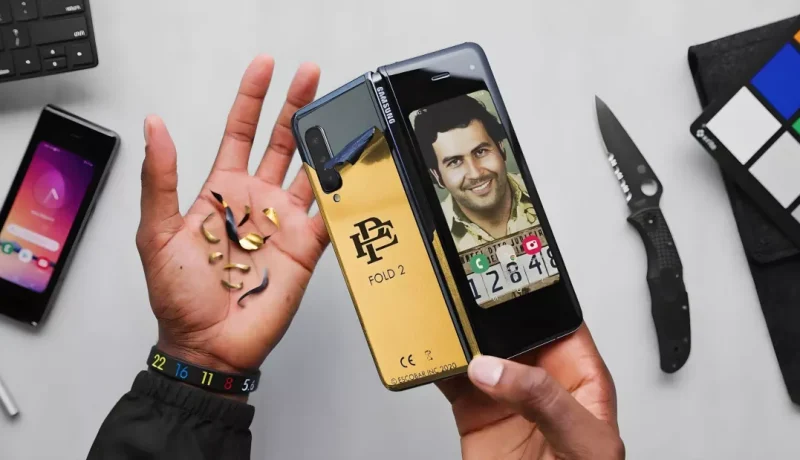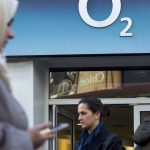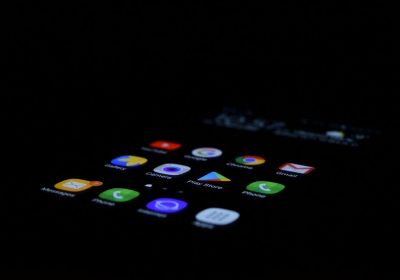
Escobar Phone Scam Exposed: CEO Pleads Guilty in Fraud Scheme
Table Of Content
In a development that comes as little surprise to those familiar with the saga of the Escobar Phone, Olof Gustafsson, the CEO of Escobar Inc., has officially pleaded guilty to a string of serious federal charges. These include wire fraud, mail fraud, and multiple counts of money laundering. The Swedish businessman, who marketed rebranded smartphones and flamethrowers under the infamous Escobar name, now faces up to 20 years in federal prison for each fraud count and 10 years for each laundering charge.
The scheme, which ran from December 2019 to June 2020, involved scamming consumers out of hundreds of thousands of dollars through misleading online sales. Though customers believed they were purchasing cutting-edge foldable smartphones or novelty items like flamethrowers, few if any ever received what they ordered. Instead, they were sent promotional materials like certificates of ownership or books, which Gustafsson used to falsely prove delivery.
The Escobar Fold 1 was first introduced at the end of 2019 and made headlines almost immediately not for innovation, but for its suspiciously low price and murky branding. The phone was sold for just $349, a jaw-droppingly low figure for a foldable device, which experts quickly identified as a rebranded Royole FlexPai.
The successor, the Escobar Fold 2, sold for $399 and was even more audaciously fraudulent: it was clearly a Samsung Galaxy Fold with flimsy gold stickers barely covering Samsung’s original branding. Popular tech YouTuber Marques Brownlee (MKBHD) was among the first to expose the scam in a viral video, showcasing how little effort had gone into masking the phone’s true origins.
Smoke and Mirrors: The Flamethrowers, iPhones, and “Escobar Cash”
The phone scam wasn’t Gustafsson’s only venture into deceit. Riding the wave of Elon Musk’s “Not-a-Flamethrower” success from The Boring Company, Escobar Inc. claimed to offer Escobar-branded flamethrowers. The reality? No such devices were ever shipped. Buyers received unrelated items such as a certificate of ownership or Escobar-themed promotional goods instead of the actual product.
The company also launched a line of gold-plated iPhones priced at just $500, and a bizarre initiative called “Escobar Cash,” marketed as the world’s first physical cryptocurrency. None of these ventures delivered what was promised. The gold-plated phones never arrived, and “Escobar Cash” was little more than a fantasy wrapped in slick marketing.
The Mechanics of the Scam: Foolproof Fraud
Gustafsson’s scam was as methodical as it was misleading. In order to maintain plausible deniability, small packages were mailed to customers typically containing promotional material like a book or certificate. This created a paper trail of delivery, which Gustafsson then used to defend against chargebacks or refund requests. When customers complained, he pointed to the tracking information as “proof” that their item had been shipped and received.
This tactic proved surprisingly effective in delaying legal consequences. With most customers unaware of how to challenge such deceptive practices, and payment processors hesitant to investigate further, Gustafsson was able to funnel more than $307,000 through this fraudulent operation in just six months.
After his fraudulent activities began to draw attention, Gustafsson fled to Spain, where he was eventually arrested. Following a protracted legal process, he was extradited to the United States in March 2024. His guilty plea came shortly afterward, as mounting evidence made his conviction virtually inevitable.
He has now agreed to pay up to $1.3 million in restitution to victims, though it remains unclear how many affected individuals will be fully reimbursed. His sentencing is scheduled for December 5, 2025, and he faces potentially decades in prison.
Reputational Fallout and Misuse of the Escobar Name
Gustafsson’s crimes also raise questions about the ongoing exploitation of the Escobar family name. The phones and other products were marketed under Escobar Inc., a company supposedly founded by Roberto Escobar, the brother of notorious Colombian drug kingpin Pablo Escobar. The firm claims to own the intellectual property associated with the Escobar name, though its business practices appear more akin to modern digital snake oil salesmanship than legitimate commerce.
The use of a criminal legacy as a marketing gimmick added a bizarre and controversial layer to the scheme. For some, it was a novelty; for others, it was a red flag. Regardless, the notoriety served to amplify visibility and, tragically, boost sales.
A particularly devious aspect of the scam was the manipulation of tech influencers and online reviewers. A few handpicked content creators including MKBHD were sent actual phones, albeit poorly rebranded versions. The strategy was simple: generate buzz and credibility by showcasing functional samples to large online audiences, all while withholding the real product from paying customers.
This tactic worked. The videos went viral, the hype grew, and more unsuspecting buyers handed over their money only to receive nothing in return.
The Escobar Phone scandal serves as a cautionary tale in an era where flashy branding, viral marketing, and influencer endorsements can easily deceive the public. Olof Gustafsson’s guilty plea marks the beginning of the end for one of the most egregious tech scams of recent years.
As legal proceedings continue, consumers and tech platforms alike are reminded of the critical importance of transparency, due diligence, and skepticism, especially in an online marketplace where style can often overpower substance.





No Comment! Be the first one.